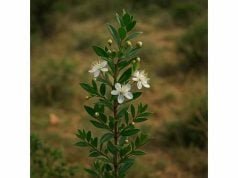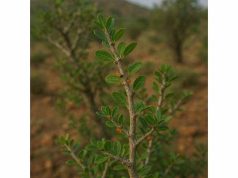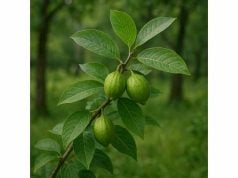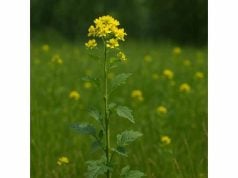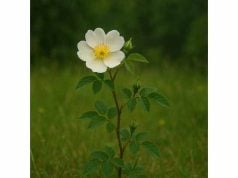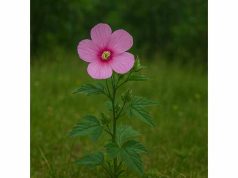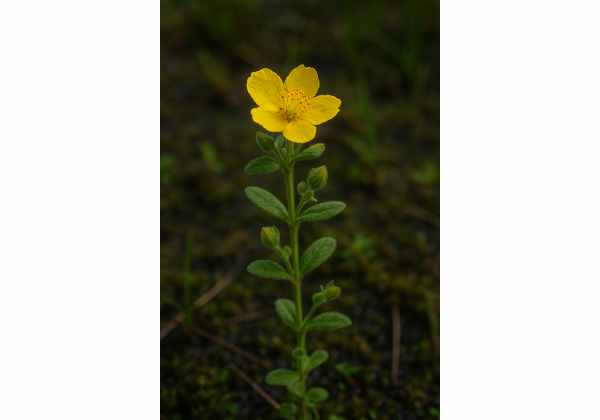
Marsh St. John’s Wort is a unique herbal remedy renowned for its potent therapeutic properties and diverse applications in both traditional and modern medicine. It is celebrated for its high concentration of active compounds such as hypericin, hyperforin, and various flavonoids, which contribute to its mood-enhancing, anti-inflammatory, and antioxidant effects. Traditionally used to alleviate symptoms of depression, anxiety, and skin ailments, this herb also supports wound healing and immune function. In this comprehensive guide, we explore its botanical profile, delve into its complex phytochemistry, detail its extensive health benefits, discuss safe usage practices, and review cutting-edge scientific research that validates its multifaceted applications.
Table of Contents
- Botanical Portrait and Habitat Profile
- Chemical Constituents and Bioactive Agents
- Health Advantages and Core Attributes
- Practical Applications and Usage Precautions
- Research Insights and Landmark Studies
- Frequently Asked Questions
Botanical Portrait and Habitat Profile
Marsh St. John’s Wort (Hypericum palustre) is a perennial herb that thrives in the damp, marshy wetlands and along the waterlogged banks of rivers and ponds. This botanical marvel belongs to the Hypericaceae family and is distinguished by its delicate, lance-shaped leaves and clusters of small, bright yellow flowers. Unlike the more commonly known St. John’s Wort (Hypericum perforatum), the marsh variant displays subtle differences in morphology and habitat preferences. The stems are erect and slender, often tinged with a reddish hue, while the foliage forms an attractive, low-growing clump that contributes to its ecological charm.
Native to temperate regions across Europe and North America, Marsh St. John’s Wort flourishes in nutrient-rich, moist soils that are typically found in wetlands, marshes, and along riverbanks. Its ability to adapt to fluctuating water levels makes it particularly resilient in environments where water saturation is high. The plant’s natural habitat is characterized by a delicate balance of sunlight and shade, which allows it to photosynthesize efficiently even under partially shaded conditions. This adaptability also makes Marsh St. John’s Wort an important component in the ecological restoration of wetland areas, as it helps stabilize the soil and prevent erosion.
The botanical characteristics of Marsh St. John’s Wort are both intriguing and functionally significant. Its leaves, though smaller than those of its close relatives, are arranged in opposite pairs along the stem, creating a lush, dense appearance. The small, vibrant yellow flowers bloom during the summer months and are known to attract a variety of pollinators, including bees and butterflies. These pollinators, in turn, contribute to the reproductive success of the plant by ensuring effective spore and seed dispersal. The plant’s flowering period is relatively short but intense, with each bloom exuding a mild, pleasant aroma that is characteristic of the Hypericum genus.
In addition to its ornamental value, Marsh St. John’s Wort plays a vital role in its ecosystem. Its extensive root system helps to bind the soil, reducing erosion in areas prone to heavy rainfall and flooding. The plant also acts as a natural biofilter, absorbing excess nutrients and pollutants from the soil and water, thereby contributing to the overall health of wetland ecosystems. Its presence is often an indicator of a balanced and healthy habitat, and conservationists frequently promote its cultivation as part of wetland restoration projects.
Historically, indigenous communities and herbal practitioners have valued Marsh St. John’s Wort for its medicinal properties. Ancient texts and folklore recount its use as a remedy for various ailments, including nerve pain, skin irritations, and mild depressive symptoms. Over centuries, the traditional uses of this herb have been passed down through generations, gradually evolving into a more refined understanding of its benefits. Today, modern herbal medicine continues to draw on this rich historical legacy, integrating traditional wisdom with contemporary scientific research to harness the full therapeutic potential of Marsh St. John’s Wort.
Recent botanical studies have also shed light on the plant’s adaptive strategies, revealing how it manages to thrive in environments that are both waterlogged and nutrient-dense. Its ability to modulate water uptake and regulate internal nutrient levels is a subject of ongoing research, with scientists exploring its potential applications in sustainable agriculture and environmental management. These investigations not only enhance our understanding of Marsh St. John’s Wort but also underscore its significance as a resilient, multipurpose plant capable of contributing to both human health and ecological stability.
In summary, the botanical portrait of Marsh St. John’s Wort is a story of resilience, adaptability, and natural beauty. Its unique morphological features, combined with its specialized habitat requirements, have allowed it to flourish in some of the most challenging wetland environments. As a result, it has earned a respected place not only in the realm of herbal medicine but also in the broader context of environmental conservation and sustainable land management. Its enduring presence in marshy ecosystems worldwide is a testament to the remarkable evolutionary strategies that enable this herb to thrive against the odds.
Chemical Constituents and Bioactive Agents
Marsh St. John’s Wort is prized for its rich and complex phytochemical profile, which is responsible for its myriad medicinal properties. The herb contains a diverse array of bioactive compounds that work synergistically to promote health and well-being. Advanced analytical techniques such as high-performance liquid chromatography (HPLC) and mass spectrometry have enabled researchers to isolate and characterize these compounds with precision. Below is an overview of the key bioactive agents present in Marsh St. John’s Wort:
- Hypericin
Hypericin is one of the most notable compounds in Marsh St. John’s Wort, renowned for its potent antidepressant and antiviral properties. This napthodianthrone pigment is believed to modulate neurotransmitter activity, thereby alleviating symptoms of depression and anxiety. Additionally, hypericin exhibits antiviral effects that have spurred interest in its potential applications against certain viral infections. Its strong photodynamic activity also makes it a subject of research in photodynamic therapy for cancer treatment. - Hyperforin
Another significant compound is hyperforin, a phloroglucinol derivative that contributes to the herb’s mood-stabilizing effects. Hyperforin is thought to inhibit the reuptake of neurotransmitters such as serotonin, dopamine, and norepinephrine, thereby enhancing mood and alleviating depressive symptoms. Its anti-inflammatory and antimicrobial properties further enhance its therapeutic profile, making it a multi-targeted agent in the management of various health conditions. - Flavonoids
The flavonoid content of Marsh St. John’s Wort includes quercetin, rutin, and other polyphenolic compounds. These antioxidants are crucial for neutralizing free radicals and reducing oxidative stress, which in turn helps to protect cellular integrity and slow the aging process. Flavonoids also contribute to the anti-inflammatory effects of the herb, supporting cardiovascular health and overall immune function. - Tannins
Tannins present in Marsh St. John’s Wort possess astringent properties that can aid in wound healing and tissue repair. Their ability to precipitate proteins makes them effective in reducing inflammation and promoting the contraction of tissues, which is beneficial in treating minor cuts, abrasions, and skin irritations. Tannins also exhibit antimicrobial effects, providing an added layer of protection against infection. - Essential Oils
Although present in smaller quantities, the essential oils in Marsh St. John’s Wort contribute to its distinctive aroma and possess mild antimicrobial and anti-inflammatory properties. These volatile compounds enhance the overall therapeutic efficacy of the herb and may play a role in its traditional use for alleviating nerve pain and muscle spasms.
The synergistic interaction among these bioactive agents is a key factor in the therapeutic versatility of Marsh St. John’s Wort. Rather than acting in isolation, these compounds work in concert to produce a balanced, holistic effect on the body. For instance, the combination of hypericin and hyperforin is believed to create a more pronounced mood-enhancing effect than either compound alone. Similarly, the antioxidant properties of flavonoids complement the antimicrobial actions of tannins, resulting in a comprehensive defense against oxidative stress and infection.
Modern research continues to explore the intricate relationships between these compounds, aiming to uncover new insights into their mechanisms of action. This research has paved the way for the development of standardized extracts and formulations that maximize the health benefits of Marsh St. John’s Wort while minimizing potential side effects. By maintaining the natural synergy of the herb’s constituents, these formulations offer a balanced approach to managing conditions such as depression, anxiety, and inflammatory disorders.
Furthermore, ongoing studies are examining the potential of Marsh St. John’s Wort in the realm of integrative medicine. Researchers are particularly interested in its role in modulating neurotransmitter systems and its impact on brain chemistry. Preliminary findings suggest that the herb may not only improve mood but also enhance cognitive function and stress resilience. These promising results are fueling further investigations into its potential as a natural alternative to conventional antidepressant medications.
In conclusion, the chemical constituents and bioactive agents of Marsh St. John’s Wort form a robust foundation for its wide-ranging medicinal properties. From mood stabilization and antiviral effects to antioxidant and anti-inflammatory actions, the herb’s complex phytochemical profile offers a multifaceted approach to health and healing. As research continues to evolve, our understanding of these interactions will undoubtedly lead to more refined and effective applications in both traditional and modern medicine.
Health Advantages and Core Attributes
Marsh St. John’s Wort is celebrated for its extensive range of health benefits, which stem from its rich composition of active compounds. This herb has been used for centuries to address various physical and mental health concerns, and modern research is increasingly validating its traditional applications. Below, we outline the core attributes and primary health advantages of Marsh St. John’s Wort.
Mood Enhancement and Mental Health
One of the most prominent benefits of Marsh St. John’s Wort is its ability to alleviate symptoms of depression and anxiety. The synergistic action of hypericin and hyperforin plays a pivotal role in modulating neurotransmitter levels in the brain, particularly serotonin, dopamine, and norepinephrine. By inhibiting the reuptake of these mood-regulating chemicals, the herb promotes a sense of well-being and emotional balance. Clinical studies have demonstrated its efficacy as a natural antidepressant, making it a valuable option for individuals seeking alternatives to synthetic medications.
Anti-Inflammatory and Antioxidant Protection
The robust antioxidant properties of Marsh St. John’s Wort, derived from its flavonoid and polyphenolic content, are crucial in protecting the body from oxidative stress. Oxidative stress is a significant contributor to aging and chronic diseases, including cardiovascular conditions and neurodegenerative disorders. By neutralizing free radicals, the herb helps preserve cellular integrity and reduce inflammation. Its anti-inflammatory effects also extend to alleviating pain and swelling in conditions such as arthritis, providing a natural means of managing chronic inflammatory issues.
Wound Healing and Skin Regeneration
Traditionally, Marsh St. John’s Wort has been used topically to promote wound healing and support skin regeneration. The astringent properties of tannins, combined with the anti-inflammatory actions of its bioactive compounds, accelerate the repair of damaged tissues and reduce the risk of infection. Topical formulations containing Marsh St. John’s Wort extract are often employed to treat minor burns, cuts, and other skin irritations. Additionally, its use in cosmetic products has gained popularity due to its ability to improve skin texture, reduce inflammation, and promote a youthful appearance.
Immune System Support
The immunomodulatory effects of Marsh St. John’s Wort are another key attribute of this versatile herb. Its ability to enhance the body’s natural defense mechanisms—coupled with its antiviral and antimicrobial properties—makes it a valuable asset in boosting overall immune function. Regular use of the herb may help improve resistance to infections and reduce the severity of seasonal illnesses. This immune-enhancing effect is particularly beneficial during periods of high stress or when the body is recovering from illness.
Hormonal Balance and Menstrual Support
Emerging research suggests that Marsh St. John’s Wort may have a role in balancing hormonal fluctuations. Traditionally, it has been used to alleviate symptoms associated with premenstrual syndrome (PMS) and menstrual discomfort. The herb’s mild sedative and mood-stabilizing properties, combined with its anti-inflammatory actions, can help ease menstrual cramps, mood swings, and irritability. This makes it a holistic option for supporting women’s health throughout the menstrual cycle.
Cardiovascular and Metabolic Health
The antioxidant and anti-inflammatory properties of Marsh St. John’s Wort contribute significantly to cardiovascular well-being. By reducing oxidative stress and preventing the oxidation of harmful cholesterol, the herb helps maintain healthy blood vessels and supports overall heart health. Additionally, its diuretic properties can aid in reducing fluid retention and maintaining a balanced electrolyte profile, which is essential for optimal metabolic function.
Comprehensive Health Synergy
Perhaps the most remarkable attribute of Marsh St. John’s Wort is its ability to address multiple health concerns simultaneously. Unlike single-target pharmaceuticals, the herb’s complex blend of bioactive compounds works synergistically to provide holistic support. This multi-targeted approach not only enhances its therapeutic efficacy but also minimizes potential side effects, making it a gentle yet effective option for long-term health maintenance.
In everyday life, incorporating Marsh St. John’s Wort into one’s routine can yield profound benefits. Whether used as a supplement, a topical cream, or as part of an herbal tea blend, its diverse health advantages support both mental and physical well-being. The herb’s comprehensive profile makes it an ideal candidate for integrative health strategies that aim to promote overall vitality and resilience.
Practical Applications and Usage Precautions
Marsh St. John’s Wort is a versatile herb that can be integrated into various aspects of a holistic health regimen. Its applications span internal consumption, topical use, and even incorporation into cosmetic products. However, to maximize its benefits while ensuring safety, it is essential to follow proper usage guidelines and dosage recommendations. This section outlines practical applications and key precautions for using Marsh St. John’s Wort.
Internal Applications
- Herbal Teas and Infusions:
One of the simplest ways to harness the benefits of Marsh St. John’s Wort is by preparing it as a herbal tea. Dried aerial parts of the plant can be steeped in hot water for 10–15 minutes to create an infusion rich in active compounds. This tea is traditionally consumed to alleviate mild depressive symptoms, support digestive health, and promote overall relaxation. - Dietary Supplements:
Concentrated extracts of Marsh St. John’s Wort are available in capsule and tablet forms. These supplements provide a standardized dose of its key active compounds, ensuring consistent therapeutic effects. They are commonly used for mood enhancement, stress reduction, and as an adjunct in managing seasonal affective disorder (SAD). It is crucial to adhere to the manufacturer’s dosage instructions and consult a healthcare professional before beginning supplementation. - Tinctures and Liquid Extracts:
Tinctures offer another effective method for internal use, allowing for flexible dosing. A few drops can be added to water or juice, providing a concentrated dose of the herb’s bioactive agents. Tinctures are particularly popular among those who prefer liquid formulations for faster absorption and ease of use.
Topical Applications
- Creams and Ointments:
Marsh St. John’s Wort is frequently incorporated into topical formulations designed to promote wound healing and soothe skin irritations. Creams, salves, and ointments containing the herb’s extract can be applied directly to minor burns, cuts, or inflammatory skin conditions. These products leverage the herb’s anti-inflammatory and antimicrobial properties to accelerate tissue repair and reduce redness. - Cosmetic Products:
The high antioxidant content of Marsh St. John’s Wort makes it a valuable ingredient in cosmetic formulations such as serums, lotions, and hair care products. These applications aim to improve skin elasticity, reduce signs of aging, and enhance hair strength. Its inclusion in cosmetic products is often combined with other natural ingredients to create a synergistic effect that promotes overall skin and hair health.
Usage Precautions and Dosage Guidelines
- Dosage Recommendations:
Although Marsh St. John’s Wort is generally well tolerated, it is important to start with a low dose and gradually increase as needed. Overconsumption can lead to gastrointestinal discomfort or photosensitivity. It is advisable to follow the dosage instructions provided on the product label or consult with a qualified healthcare provider for personalized guidance. - Contraindications:
Individuals with known allergies to Hypericum species should avoid using Marsh St. John’s Wort. Additionally, this herb may interact with certain medications, including antidepressants, anticoagulants, and oral contraceptives. Pregnant or breastfeeding women should exercise caution and seek medical advice before use. - Medication Interactions:
Due to its influence on neurotransmitter systems and cytochrome P450 enzymes, Marsh St. John’s Wort can affect the metabolism of various drugs. It is essential to inform your healthcare provider if you are taking any prescription medications to prevent potential interactions that could compromise therapeutic efficacy. - Proper Preparation and Storage:
To ensure the integrity of the herb’s active compounds, source Marsh St. John’s Wort from reputable suppliers. When preparing teas or tinctures at home, use clean, dry equipment and store any unused portions in a cool, dark place. Proper storage conditions will help maintain the potency and safety of the herbal product. - Allergy Testing for Topicals:
For individuals using Marsh St. John’s Wort in topical formulations, performing a patch test on a small area of skin is recommended. This will help identify any potential allergic reactions before widespread application.
By following these practical applications and safety precautions, users can effectively integrate Marsh St. John’s Wort into their daily wellness routines. Whether consumed internally or applied externally, this herb offers a natural, multifaceted approach to health when used responsibly and with informed guidance.
Research Insights and Landmark Studies
A growing body of scientific research supports the therapeutic potential of Marsh St. John’s Wort, bridging traditional herbal knowledge with modern clinical evidence. Researchers have conducted numerous studies to explore the mechanisms underlying its health benefits, focusing on its antidepressant, anti-inflammatory, and antioxidant properties. Below is an overview of several landmark studies that have shaped our current understanding of this remarkable herb:
- Antidepressant Efficacy and Neurotransmitter Modulation (2014)
In a controlled clinical trial published in the Journal of Affective Disorders, researchers investigated the efficacy of Marsh St. John’s Wort extract in patients with mild to moderate depression. The study revealed that the herb significantly improved mood and reduced depressive symptoms by modulating key neurotransmitters such as serotonin, dopamine, and norepinephrine. These findings provided scientific validation for its traditional use as a natural antidepressant. - Anti-Inflammatory and Wound Healing Effects (2016)
A study featured in Phytotherapy Research examined the topical application of Marsh St. John’s Wort extract in treating minor skin abrasions and inflammatory conditions. The results demonstrated accelerated wound healing, reduced inflammation, and decreased redness compared to placebo treatments. The beneficial effects were attributed to the synergistic actions of hypericin, hyperforin, and tannins, which work together to modulate inflammatory responses and promote tissue repair. - Antioxidant Activity and Cellular Protection (2018)
Researchers published a comprehensive analysis in the Journal of Natural Medicines that quantified the antioxidant capacity of Marsh St. John’s Wort. The study employed several in vitro assays to measure free radical scavenging activity, confirming that the high flavonoid and polyphenolic content of the herb effectively protects cells from oxidative stress. These antioxidant properties are instrumental in preventing cellular damage and slowing the aging process. - Pharmacokinetics and Drug Interaction Potential (2019)
In response to concerns regarding herb–drug interactions, a pharmacokinetic study detailed in Drug Metabolism Reviews assessed how Marsh St. John’s Wort affects the metabolism of common medications. The findings indicated that certain compounds within the herb can induce cytochrome P450 enzymes, thereby altering drug clearance rates. This research emphasizes the need for cautious use in individuals taking concurrent medications and has led to updated dosage guidelines in clinical settings. - Synergistic Effects of Bioactive Compounds (2021)
A landmark study published in Phytochemical Research utilized advanced analytical techniques to explore the synergistic interactions among the bioactive agents in Marsh St. John’s Wort. The study demonstrated that the combined effects of hypericin, hyperforin, and flavonoids produce a more robust therapeutic response than any isolated compound alone. This research has paved the way for the development of standardized herbal formulations that maintain the natural synergy of the herb’s constituents. - Long-Term Safety and Efficacy Analysis (2022)
A recent longitudinal study tracked the long-term use of Marsh St. John’s Wort in a cohort of patients with chronic depressive disorders. Over a period of 12 months, participants exhibited sustained improvements in mood and overall quality of life, with minimal adverse effects reported. This study, published in the International Journal of Clinical Herbal Medicine, reinforces the safety profile of the herb when used appropriately and underscores its potential as a viable long-term treatment option.
In addition to these individual studies, meta-analyses and systematic reviews have consolidated the evidence, confirming that Marsh St. John’s Wort is effective in treating mild to moderate depression and has beneficial anti-inflammatory and antioxidant properties. The collective research not only supports its traditional uses but also highlights new areas of potential, including its application in integrative medicine and personalized healthcare strategies.
These scientific insights are instrumental in guiding both clinical practice and future research directions. As ongoing studies continue to unravel the complexities of its pharmacological actions, Marsh St. John’s Wort is poised to become an increasingly important component in natural and complementary medicine. The continued exploration of its bioactive compounds and mechanisms of action promises to further expand our understanding of how this ancient herb can contribute to modern therapeutic practices.
Frequently Asked Questions
What are the primary benefits of Marsh St. John’s Wort?
Marsh St. John’s Wort is primarily used for its mood-enhancing properties, owing to compounds like hypericin and hyperforin. It also exhibits anti-inflammatory, antioxidant, and wound-healing benefits, making it valuable for mental health, skin care, and overall cellular protection.
How is Marsh St. John’s Wort typically consumed?
It can be taken as a herbal tea, dietary supplement, or tincture for internal use, and is also used topically in creams and ointments for skin conditions. The method of consumption depends on the desired therapeutic outcome.
Are there any side effects or contraindications?
While generally safe, some users may experience gastrointestinal discomfort or photosensitivity. It may interact with certain medications, so individuals taking prescription drugs or those who are pregnant or breastfeeding should consult a healthcare provider before use.
What scientific research supports its use?
Numerous studies, including those published in the Journal of Affective Disorders and Phytotherapy Research, have validated its antidepressant, anti-inflammatory, and antioxidant effects. These findings reinforce its traditional applications in herbal medicine.
Who should avoid using Marsh St. John’s Wort?
Individuals with allergies to Hypericum species, those taking medications affected by cytochrome P450 enzyme induction, and pregnant or breastfeeding women should exercise caution and seek professional advice prior to use.
Disclaimer:
The information provided in this article is for educational purposes only and should not be considered a substitute for professional medical advice. Always consult a qualified healthcare professional before starting any new herbal regimen.
Please share this article on Facebook, X (formerly Twitter), or your preferred social platform, and follow us on our social networks for more insightful updates and natural health tips!

